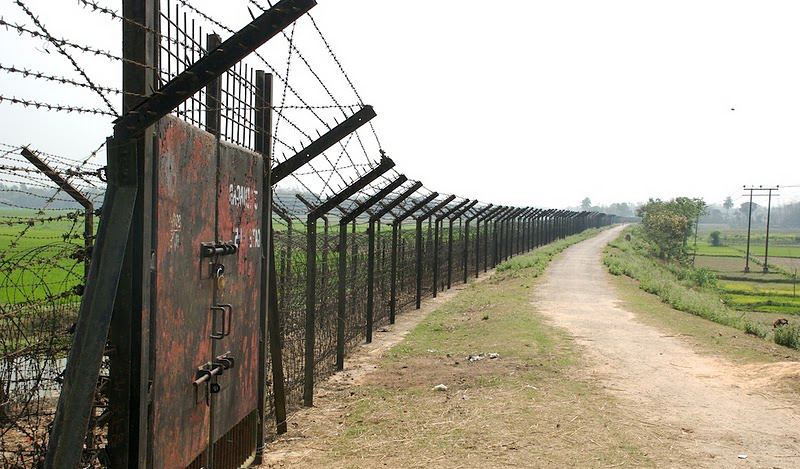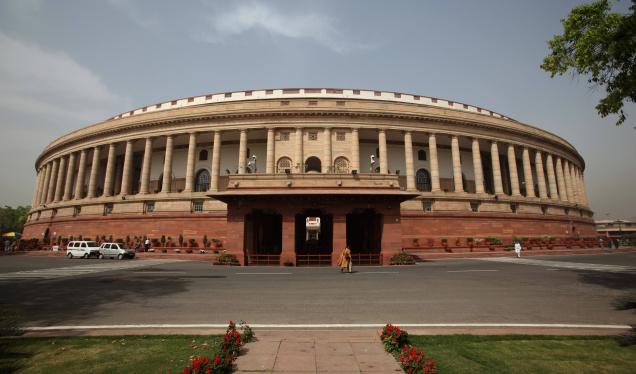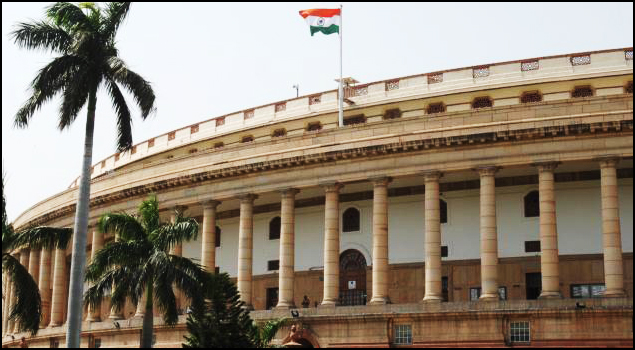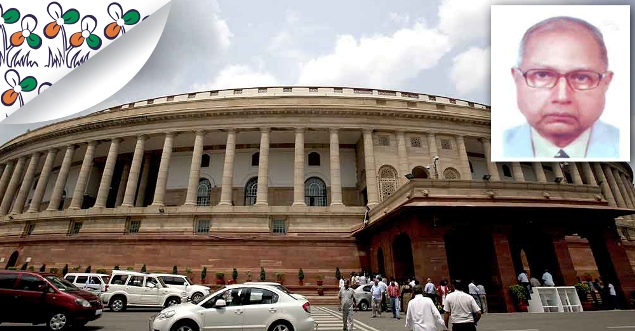Full Transcript
Sir, when we are discussing on the working of the Ministry of Law and Justice, first of all, I would like to highlight about the three Departments which are functioning under the Ministry of Law and Justice. All of us know that these are (i) Department of Legal Affairs; (ii) Legislative Department; and (iii) Department of Justice.
So far as the Department of Legal Affairs is concerned, they are handling the functioning of 13 major areas. I don’t want to go into the details because of paucity of time, and you may start ringing the bell then. Similarly, the Legislative Department acts mainly as the service provider because they are engaged in the preparation of notes for Cabinet, drafting of Government bills, etc. And, the Department of Justice also deals with 13 major subjects, and I need not elaborate on it, as I said, because of paucity of time.
Sir, the focus which is, particularly, being given today by different Hon’ble Members, is on the justice rendering system, that is, the Justice Delivery System through High Courts, District Courts, Subordinate Courts, Tribunals, etc. We are, no doubt, in a state of disarray because things have not improved.
We, as a nation, took a pledge to ourselves that justice should be within the reach of the common man, at the doorsteps of the common man and so many measures have been adopted by the successive Governments from time to time, even to the extent of setting up of Gram Nyayalayas under the Panchayat Act, so that the rural people for each and every litigation, maybe petty litigation, have to come to the district headquarters or the sub-divisional headquarters. It need not be.
So, in this way, the successive Governments have tried to emphasise on the principle that I have stated, justice at the doorsteps of the common man, but when we go and scrutinize the functioning of judiciary as a whole, no doubt Tyagiji has rightly pointed out, that because of the default or deficiency on the part of the Executive and, to some extent, the Legislature, I must admit that the people of this country are, sometimes, subjected to even judicial excess. If I use this term ‘judicial excess’, I think, it will explain everything. While on the one hand, while discussing the functioning of the Ministry I must congratulate the officers and the staff who are attached to the three Departments I have mentioned because they are doing a commendable job.
As a Member of this august House since 2011, as a Member of the Standing Committee related to the Ministry of Law and Justice since 2011, I have found that the officers and staff of the three Departments are doing a commendable job under severe constraints, but the other side is so dark — the justice rendering system, the justice delivery system — that it is going day-by-day out of the reach of the common man. How is this to be addressed?
In spite of several measures taken by Government at different times, things are not improving. Prof. Ram Gopal Yadav and other Hon’ble Members have rightly pointed out about some areas. One area is, nowadays some judicial officers are more interested to dispose of or to entertain the Public Interest Litigation. Shri Satish Chandra Misra is also here. He knows better than us.
In S. P. Gupta Case, probably, the Supreme Court commented and it is in the judgment itself that sometimes, this Public Interest Litigation becomes a publicity interest litigation or a ‘paisa income litigatio’n and there are so many professional nowadays, who are moving PIL, one after another, for good reasons, valid reasons or no reasons. Some companies, because of their inter-company rivalry are putting some NGOs or even some members of legal fraternity to move a PIL and to stall something. Even our developmental projects of the country are, sometimes, being stalled by some NGOs under the garb of PIL.
There should be locus standi and the petitioner should go for a deep research on the subject and then come before the court and in most of the cases these principles are not taken care of, I am sorry to say, in spite of the judgment. Sir, now it has gone to the extent that even sub-judicial officers are also very interested because their names are also appearing day-in-and-day-out. At the top of the newspaper you will find, today this PIL has come up, this verdict has been given or some observations have been made. It has gone to the extent that whether Members of Parliament will use red beacons in their car or not. That is also being determined by the apex court.
Another point is, the Supreme Court also decided that if a Member of Legislature or a Member of Parliament is punished by a district court or even a lower court for three years, his right to appeal has gone and is not entitled to be a Member of the Legislature or Parliament. Suppose, a criminal defamation case is instituted against me and, as per the IPC, punishment for this is three years. And, if a lower court gives a punishment of three years against me then I am gone from the political scenario. I am removed from the political scenario once and for all.
There are thousands of innocent people languishing in different jails even after getting bail order from court. They are not being released, because they could not produce surety. And, Sir, so many people are at the mercy of judge. It is the discretion of the judge to grant bail or not to grant bail. There is no Bail Act in our country. In England there is a Bail Act.
In our country, after sixty-seven years of Independence, we do not have any Bail Act! We are at the mercy of the judicial officers. Here, My Lord or His Lordship will decide whether I am entitled to bail or not looking at the case records hurriedly within minutes and declare whether I will get bail or not, even the anticipatory bail.
Why don’t we follow a similar Bail Act prevailing in England and in many other advanced countries? So, I request the Hon’ble Law Minister to look into this aspect whether a Bail Act can be introduced by the Government. Sir, now, it has become a fashion, of late, to say that whatever enacted by the British Parliament 100 years back or 150 years back is draconian. It has become a fashion. The press is writing. We are also fighting, particularly keeping an eye on the Land Bill.
They have had a series of Acts; I need not mention all. But I will mention only two-three—the Indian Evidence Act dates back to 1872 and we are still following it; General Causes Act, 1897; Explosives Act, 1884; Indian Police Act, 1861; Indian Penal Code Act, 1860; Indian Trust Act, 1882; Indian Contract Act, 1872, although some Amendments have been given effect to from time to time, still we are following. So, only because the Acts are old or they are passed during the British Parliament, it need not be said that all are draconian Acts. Wherever Amendments are required, the Government must look into it. The Department concerned must look into it.
Both the Criminal Procedure Code and the Civil Procedure Code have been amended to some extent. But they require further Amendments. For years together, the cases are going on, particularly in the civil cases. The learned lawyers who are practising on the civil side know that during their life-time the case might not be resolved or might not come to an end. In the Calcutta High Court I have found that still there is a civil case of 1930 pending before it!
The main question is the vacancies of judges and the pendency of the cases. Many hon’ble speakers have spoken on it and I will highlight only the bullet points. There were recommendations from various bodies because more than three crore cases are pending now-a-days in the country. Mostly they are in the higher courts, not in the district or subordinate courts.
So, the ratio is much in the higher courts. Several bodies like the Law Commission of India, the National Commission, to review the working of Constitution and the Law Ministry have proposed ways in which the issue of pendency of courts may be addressed.
Sir, on the time-frame for disposing cases, there is no time-frame. I am not asking for a mandatory provision. There must be some flexibility. But there should be some rationale also. How long should a case continue? For decades together? When would there be a full stop? So, there should be a rationale, yet not mandatory for making a time frame.
Sir, similarly, on the creation of special courts, the Government tried morning courts and evening courts. Funds were allocated. The funds are lying idle. It is not being utilized properly by the States. Therefore, this should be taken note of. Additional courts need to be assessed by the High Courts. The High Courts should themselves assess the pendency.
The Supreme Court should itself assess the pendency and should also assess how to address the problem. Sir, on the vacancies of judges, you know how many vacancies are there. On this also there were several recommendations. One recommendation was that recruitment of judges should be on the break-even point.
The recruitment of new judges should focus on the number of judges required to break even and to dispose of the backlog within three years. It was a very important recommendation yet to be adopted by the Government.
I request the hon. Minister to look into this. Fix the number of judges based on the pendency. On the appointment of retired judges, there should be a cooling period. Ram Gopalji was saying that there is no retirement for the judges. Even after retirement, the very next day, they get a new appointment in a tribunal. It has become a breeding ground for judges. There may be hundreds of valid reasons. But there should be some cooling period also. Sir, on the strength of judges, Mr. Ravi Shankar Prasad, as the Law Minister, introduced and we passed legislation on the Constitutional Amendment, on the National Judicial Appointments Commission, which is now in knee deep water.
What to speak of the other Bills which lapsed due to the dissolution of the Lok Sabha twice, the Judicial Accountability Bill and the Judicial Enquiry Act. What about the corruption Tyagiji was talking about, corruption in Judiciary?
Lastly, Sir, I say that an eminent jurist, who subsequently became the Speaker of the other House, made a public statement once that nowadays justice is a purchasable commodity. At that time, there was uproar in the country. Being a lawyer, I could not support this. I asked a few of my clients, “Do you support this view?” All of them said, “Yes.” With these words, Sir, I conclude my speech, and I request the hon. Minister to look into the suggestions that I have made.
Thank you, Sir.




